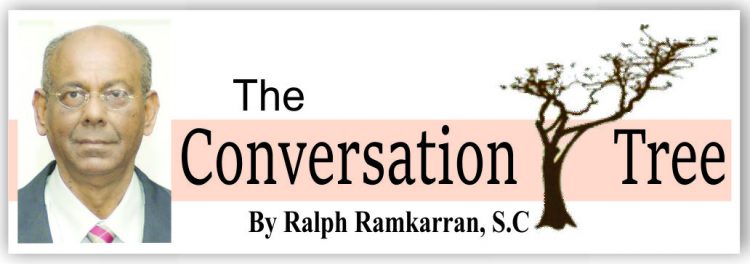
The British Guiana Labour Union was formed in 1922, the first in the British Empire, the Man Power Citizens Association in 1937 and the Transport Workers Union in 1938. In 1947 bauxite workers went on strike, in 1948 the successful Teare Strike was called by the Transport Workers Union and later that same year the infamous strike of Enmore sugar workers took place in which workers were shot in their backs with five becoming martyred. This heightened labour activity was a feature of the Caribbean Region prompted by a decline in sugar prices which further exacerbated poverty.
These events triggered the formation of the PPP in 1950. Its composition demonstrated a surprisingly mature outlook by the 33-year-old Cheddi Jagan and his youthful colleagues. Its leadership was comprised of a broad cross-section, ethnically diverse, combination of leftists, non-leftists, professionals, businesspeople, workers, trade unionists, youth, women and other groups, spanning the entire spectrum of the social composition of British Guianese society, with its Chairman being Forbes Burnham, a Guyana scholar and newly-qualified lawyer.
After an overwhelming victory at the first elections held under universal suffrage in 1953, brought about by intensive agitation by the PPP, the constitution was suspended by the British Government on the ground that its leaders were “communist,” not an unusual occurrence in the colonial or developing world where suppression of communism was a favourite imperialist tactic to subvert nationalist movements. Guyana’s history still reverberates at this traumatic event in its history. Professor Colin Palmer in “Cheddi Jagan and the Politics of Power – British Guiana’s struggle for Independence“ (2010) convincingly demonstrates that PPP’s policies were reformist in “tone and emphasis.” He said that although “stridently nationalist…the notion that the Guianese leaders were Russian puppets was profoundly misguided and constituted a gross misunderstanding of their nationalist aspirations.”
Palmer pointed out that the Jagans were different types of politicians. They “spent years going into the same areas eating, sleeping and talking with the people” that had won them their affection. They possessed that “rare but undefinable quality to obtain and sustain the abiding trust of the people in whose name they spoke …The Jagans had kept faith with their admirers, a quality that meant the efforts by the colonial regime to discredit them failed because the wellspring of their support was deep and suffused by a passionate, religious-like fervour.”
The ”marking time” period from 1953 could not be sustained beyond 1957 by which time the colonial authorities may have felt or, at least, hoped that the oppression after 1953 and the split of the PPP in 1955 may have subdued the PPP’s truncated leadership. But the PPP won the next two elections in 1957 and 1961. For the first time economic development, housing, health and education were geared and expanded to alleviating the conditions of poverty of Guianese. But the Cold War once again intervened in British Guiana’s politics and, at the instigation of the United States, the British Government imposed a “fiddled constitutional arrangement,” the proportional representation electoral system, as described by the Labour Party Leader, Harold Wilson, for the sole purpose or removing the PPP Government from office, which was subsequently successful. This “fiddle” removed the PPP from office in 1964 and kept it out for twenty-eight years by rigged elections.
Perhaps Cheddi Jagan’s greatest hour was the twenty-eight years he spent in the wilderness. In search of allies to combat the US supported emerging dictatorship in British Guiana, he sought out the world’s progressive and national liberation movements. His stature grew exponentially because his vision was not confined to British Guiana but embraced worldwide problems such as poverty, exploitation, debt relief, war, inequality and discrimination. During this period, he showed no bitterness, displayed humility, lived simply and shrugged off all insults and attacks.
The criticisms were not few. From his alleged communism in 1953 and later, the signing of the Sandys letter in 1964, his alignment of the PPP with the “communist” world, exploiting Indian ethnic sentiments, being naïve. He endured many and answered as many as he could. Sometimes he changed course, but never once deviated from the mission that life selected for him, namely, the elimination of poverty. To aid the success of this mission he was convinced that a political solution was necessary to end political instability and create the conditions for unity, democracy and equitable economic development.
George Lamming described the wide-ranging impact of his life. He said that without Cheddi Jagan, it would be difficult to imagine a Walter Rodney or a Gordon Rohlehr.
(Excerpts from an article written by me and published in The Arts Journal 2018).
(This column is reproduced with
permission from Ralph Ramkarran’s blog, www.conversationstree.gy)





